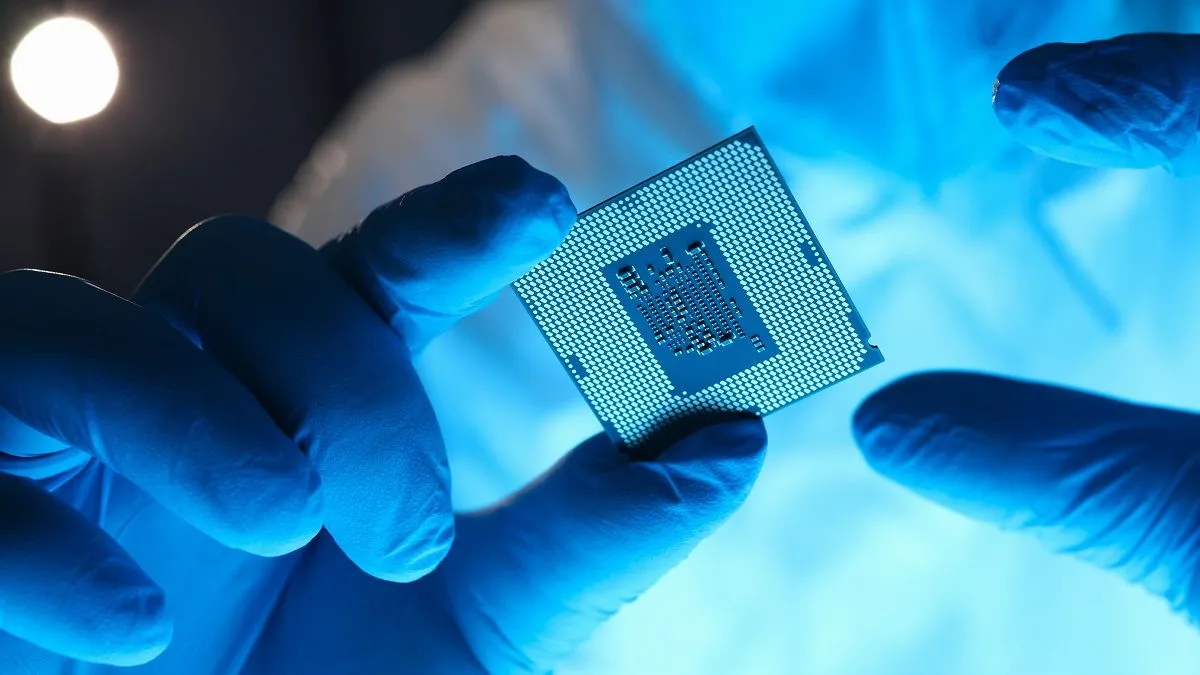Intel has recently amended its CHIPS Act funding agreement with the US Department of Commerce, receiving approximately $5.7 billion earlier than initially planned. This accelerated funding marks a significant step in strengthening domestic semiconductor manufacturing and providing.
Intel greater flexibility to invest in advanced technologies, research, and workforce development. The CHIPS Creating Helpful Incentives to Produce Semiconductors Act is a federal initiative aimed at bolstering the US semiconductor industry.
It provides billions in funding to companies like Intel to reduce dependence on foreign chip suppliers, promote innovation, and enhance national security.
For Intel, this funding is not just financial support it represents an opportunity to lead in next generation chip technologies, ensuring that the US remains competitive in a sector critical to AI, quantum computing, and 5G infrastructure.
The recent amendment to Intel’s CHIPS Act funding agreement removes previous project milestones, allowing the company to use the funds more flexibly and strategically.
Under the updated agreement, Intel received $5.7 billion sooner than expected. This early injection of capital gives Intel the resources to accelerate the construction of semiconductor fabrication plants (fabs), expand R&D initiatives, and hire skilled employees.
Analysts note that such financial flexibility allows Intel to respond quickly to emerging technological trends, invest in innovative projects, and maintain a leadership position in the global semiconductor market.
In return for the accelerated funding, the US government obtained a 9.9% equity stake in Intel. While this stake is passive meaning it does not interfere in Intel’s daily operations it ensures that public investment in the semiconductor industry has a measurable long term impact.
Industry experts suggest that this equity stake aligns with the government’s goal of securing strategic influence in critical technological sectors, while also sharing in the company’s potential growth.
Previously, Intel faced limitations on how it could use CHIPS Act funds, including restrictions on certain international projects and financial maneuvers.
The amended agreement relaxes these rules, permitting Intel to allocate funds for dividends, share buybacks, and strategic expansions abroad.
This flexibility allows Intel to optimize its investment strategies, strengthen its global presence, and maintain competitiveness against companies like TSMC and Samsung.
Implications for Intel and the Semiconductor IndustrY
With the Intel CHIPS Act funding, the company can rapidly scale domestic manufacturing. By constructing state of the art fabs in the US, Intel reduces reliance on foreign suppliers a critical factor in mitigating supply chain risks exposed during the COVID-19 pandemic and geopolitical tensions.
Experts predict that these investments will also create thousands of skilled jobs, contributing to local economies and solidifying the US as a global semiconductor hub.
The accelerated funds empower Intel to invest in cutting edge technologies. Research in artificial intelligence, quantum computing, and advanced chip design will benefit from this early cash infusion.
Personal accounts from Intel engineers highlight excitement about working on high impact projects, knowing the company now has the resources to innovate without immediate budget constraints.
While the funding and government equity stake strengthen Intel’s position domestically, the company must carefully navigate international markets.
Trade restrictions, foreign partnerships, and market access will be critical considerations. Intel’s leadership emphasizes that balancing domestic growth with international collaboration is essential to maintaining global competitiveness.
Taiwan Semiconductor Manufacturing Company (TSMC)
TSMC, a global leader in semiconductor manufacturing, has expanded its US presence with new fabs in Arizona. This strategic move helps reduce supply chain vulnerabilities caused by geopolitical tensions, echoing Intel’s focus on domestic expansion through CHIPS Act funding.
Samsung has invested heavily in semiconductor research and global manufacturing facilities, ensuring its competitiveness in a rapidly evolving market.
Intel’s approach, supported by accelerated CHIPS Act funding, reflects similar goals strengthening innovation while managing international operational risks.
Industry analysts view Intel’s early access to CHIPS Act funding as a major positive for both the company and the US economy. This funding allows Intel to act decisively on innovation and domestic manufacturing, said one semiconductor expert.
Government officials also highlight the strategic importance of the agreement, noting that public private partnerships are key to securing technological leadership.
Intel employees express optimism about the funding amendment. Engineers report feeling empowered to pursue long term projects and explore innovative solutions without being constrained by previous milestones.
This renewed confidence contributes to a stronger organizational culture and attracts top talent to the company. The accelerated Intel CHIPS Act funding is expected to stimulate economic growth through job creation, infrastructure investment, and technological innovation.
Local communities near new fabs will benefit from employment opportunities, while Intel strengthens its supply chains and production capabilities.
Strategic Significance
By expanding US based semiconductor manufacturing, Intel contributes to national security and economic resilience. Reducing reliance on foreign suppliers ensures stability in critical industries such as defense, AI, and communications.
Despite the advantages, Intel faces potential risks including regulatory hurdles, geopolitical challenges, and market competition. Successful execution of expansion plans and effective management of international operations are essential to maximize the benefits of CHIPS Act funding.
Intel’s amendment to its CHIPS Act funding agreement represents a pivotal moment for the company and the US semiconductor industry.
The early $5.7 billion disbursement, relaxed restrictions, and strategic government partnership position Intel to lead in manufacturing and technological innovation.
Through careful execution, strong governance, and strategic investment, Intel is set to leverage this funding to strengthen US competitiveness, drive innovation, and shape the future of semiconductor technology.
The Intel CHIPS Act funding initiative is a clear example of how public private collaboration can accelerate growth, protect national interests, and foster a resilient, technologically advanced economy.
